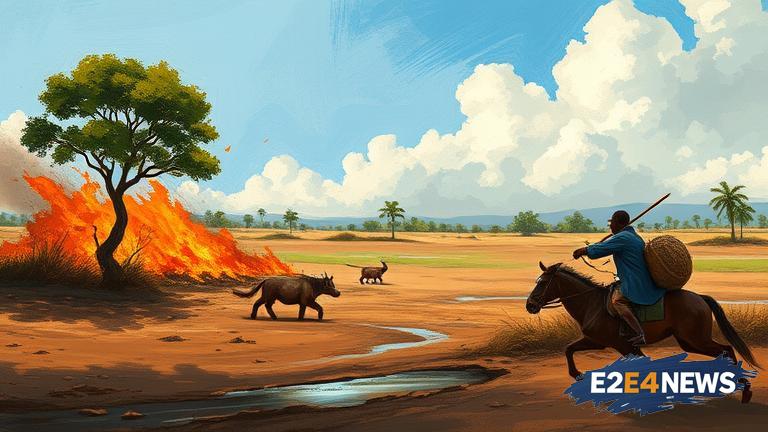The Bawku conflict in Ghana has been a longstanding issue, with intermittent outbreaks of violence and tensions between the Kusasi and Mamprusi ethnic groups. The conflict has resulted in loss of lives, destruction of property, and displacement of people. To address this issue, Ghana must implement a bold solution that takes into account the complexities of the conflict. One possible approach is to draw inspiration from the Tsito-Peki experience, where a similar conflict was resolved through a combination of traditional and modern methods. The Tsito-Peki experience shows that with the right approach, it is possible to bring lasting peace to the region. The Bawku conflict is not just a local issue, but a national concern that requires a comprehensive solution. The government of Ghana must take a proactive approach to address the root causes of the conflict, including land disputes, chieftaincy issues, and economic marginalization. A bold solution would involve engaging with local stakeholders, including traditional leaders, community members, and civil society organizations. It would also require investing in economic development projects, such as agriculture, infrastructure, and education, to create opportunities for the local population. Furthermore, the government must establish a robust security presence in the region to prevent outbreaks of violence and ensure the safety of citizens. The international community, including the United Nations and the African Union, can also play a role in supporting Ghana’s efforts to resolve the conflict. The Bawku conflict is a reminder that peace and stability are essential for economic development and human prosperity. Ghana has made significant progress in recent years, but the Bawku conflict remains a major challenge that must be addressed. The country’s reputation as a stable and peaceful democracy is at stake, and it is essential that the government takes bold action to resolve the conflict. The Tsito-Peki experience offers valuable lessons that can be applied to the Bawku conflict, including the importance of community engagement, traditional leadership, and economic development. By drawing on these lessons, Ghana can develop a comprehensive solution that addresses the root causes of the conflict and brings lasting peace to the region. The Bawku conflict is a complex issue that requires a multifaceted approach, involving government, civil society, and traditional leaders. It is essential that all stakeholders work together to find a solution that is acceptable to all parties. The government of Ghana must take the lead in this effort, but it must also be willing to listen to and work with local stakeholders. The international community can provide support and guidance, but ultimately, the solution must come from within Ghana. The Bawku conflict is a test of Ghana’s commitment to peace, stability, and democracy, and it is essential that the country passes this test. By implementing a bold solution inspired by the Tsito-Peki experience, Ghana can bring lasting peace to the region and consolidate its reputation as a stable and peaceful democracy. The time for action is now, and it is essential that the government of Ghana takes immediate and decisive action to address the Bawku conflict. The future of the region and the country as a whole depends on it. In conclusion, the Bawku conflict requires a bold solution that draws inspiration from the Tsito-Peki experience. The government of Ghana must take a proactive approach to address the root causes of the conflict, engage with local stakeholders, and invest in economic development projects. The international community can provide support and guidance, but ultimately, the solution must come from within Ghana. With bold action and a commitment to peace and stability, Ghana can bring lasting peace to the region and consolidate its reputation as a stable and peaceful democracy.





